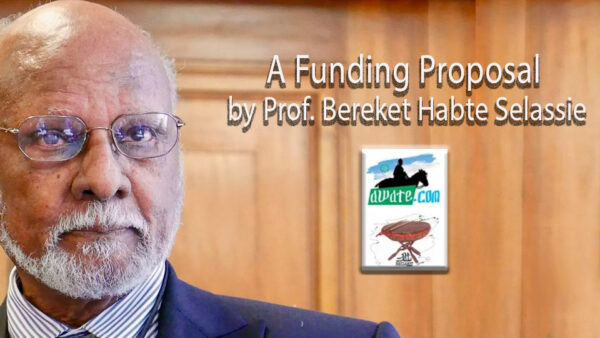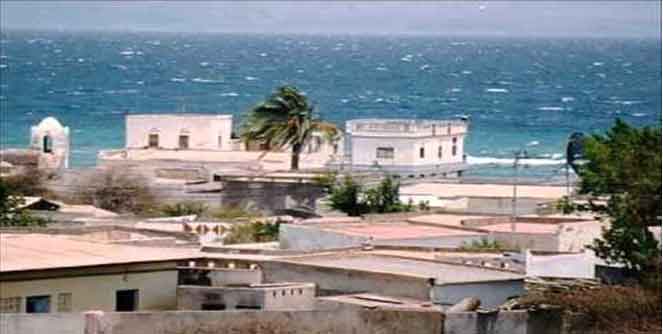Realisation One’s Wrong Deed Is A Virtue
Really an astonishing and a historical revelation was made by the Ethiopian Prime Minister Meles Zenawi in one of his last election campaigns. He definitely has a strong ethnic, cultural and (until recently) political ties with the kebesa community in Eritrea that no one can deny. Thus, no reasonable person can accuse him of trying to appease the lowlanders in Eritrea at the expense of his kins. But still, some of the kebesa fanatics, out of the group’s interest, would be prompted to opt to an outright rejection or doubting the authenticity of his statement without hesitation or bothering to consider the contents and motives objectively. One would have understood and even given the fanatics the benefit of doubt only if what Mesles said could not be substantiated by solid facts from our recent history—the period of self determination to which most of us are living witnesses. To exhaustively list all relevant details of that era and the role played by the different parties is beyond the scope of this article, but a few examples can be cited just to refresh the minds, particularly of those that would like to condemn that historical epoch to oblivion and pretend that nothing worth noting had happened.
Who can deny Abuna Marcos’ and Geshi Demitros’ role in involving the Orthodox Church to promote unity and their active role in the establishment the Andenet Party (Unity with Ethiopia) that fiercely fought under the slogan ‘Ethiopia or Death’, and the brutal Shifta terror it waged against all those who advocated for Eritrean independence. This was fully funded and organised by the Ethiopian Government. The terror basically targeted Muslims, the few Christians who were for independence, and Italian civilians who were its victims. One can read ‘Gli Anni Difficili 1941–1951’ to see the brutality of that terror in text and pictures though the Italian author focuses more on the Italian civilian victims—just click on ‘Avanti’ to go over the whole pages of the book. If it had been today, the EU could have sanctioned both the Party and the then Ethiopian Government for killing many civilian Europeans. At the end, even those who advocated unity got both ‘Ethiopia’ and ‘Death.’ What about the brutal atrocities committed by the Commandos against the liberation front and its supporters in the sixties and up to early seventies? What about The different collaborators in the rank and file of Ethiopian administration in Eritrea who were instrumental in the occupation of Eritrea by Ethiopia?
The evasion of this issue and others, whether intentional or not, would neither serve the long-term interest of the nation nor help in building trust between the different partners. We need healing and reconciliation and this is achieved only by recognising, understanding and admitting the past grievances. But it does not mean that all Christian highlanders are held accountable for these crimes; this unequivocal truth has been continuously reiterated and accepted by one section of our people (Lowlanders) but has being repeatedly and ardently denied, and strongly disputed, by the other section (kebasa Christians). Lately it was clearly spelled out by Meles; as the Arabic saying states, ‘shahada shahidon min ahliha’: a testimony by a member of the same family.
What is really bothering and mind bogging is this question: why are historical facts of such magnitude and gravity ignored? Why are they not admitted by at least the intellectuals and the kebasa older generations who lived during that period? I hope that deep in their souls they realise the truth which one day would need to be openly accepted. It was not a mere manifestation of a political stand; but it transgressed into violent forms that entailed a lot of damage and inflicted suffering on the recipient that could not forget what his counterparts have done easily.
It was, and still is, difficult to come to terms with the fact that some not only sided with Ethiopia politically, but even fought for it against national forces who stood up for independence of Eritrea. The period between the forties and the sixties of the last century cannot in any way be considered just an unfortunate past that one has to overlook and carry on business as usual— some would like to do that guided by the logic of preserving the national unity. Certainly, that logic is acceptable as long as it is not that only one side would pay and at the same time not be appreciated and acknowledged by the other. The acknowledgement of this historical fact would certainly not undo the wrongdoings—and that is not demanded just for the sake of scoring points—but it is a prerequisite for the healing of the precipitated bitterness of our experiences, and a prelude to a meaningful reconciliation that all national forces must undertake to mend the badly torn mesh of our current social fabric, and restore the trust, safeguard our unity and hope for a dignified and a better future for all our people.
What Meles stated is not a secret and no one has a monopoly over it since it is publicly accessible in Youtube. Nevertheless, I‘ll spare you the trouble of the search and try to provide an accurate translation of Meles’ statements.
A Summary of What Meles Said:
Meles said that many people hold an erroneous opinion that Ethiopia lost Eritrea due to the lack of a skilful diplomatic policy from the part of Meles’ government in contrast to the effective policy that the Emperor waged to secure the unification of Eritrea with “Mother Ethiopia” and thus secure sea ports for Ethiopia. Meles went on to explain that the victorious nations in World War II agreed that the fate of all former Italian colonies be decided by the UN. Eritrea, which during the period was under the British rule, was given three choices for a solution: full independence, mainly supported by the lowlanders/Muslims; unity with Ethiopia, supported by Christian kebassa; and the choice of dividing the country into an eastern part that would be annexed to Ethiopia and a western part that would be united with the Sudan—this was opposed by both parties. A final compromise solution was proposed by the UN: federation with Ethiopia. The Muslims accepted this compromise though it fell short of their aspiration for a full independence. At least it guaranteed their basic human and political rights, self-rule, elected parliament and government, language, national institutions and symbols, flag—a national identity and culture all enshrined in a constitution that the UN guaranteed to preserve.
After a while, the Ethiopian cabinet decided that this situation was unacceptable as it basically contradicted the cornerstone principle on which the Ethiopian Empire was built and it was a system unlike any other. The ruling class in Ethiopia believed that those who do not resemble them shouldn’t be tolerated or allowed to be different for that would jeopardise the country’s unity. Thus the Ethiopian government embarked on a systematic and gradual dismantling of the federation until finally it abolished the federal system and annexed Eritrea. This led to the outbreak of an armed struggle that was initiated and led by the lowlanders as they were the side that lost everything they gained through the federation. This demonstrates that Eritrea was not won by diplomatic effort or because Ethiopia and its allies wanted that, but primarily because the decisive role was the will of the kebessa Christians who wanted unity with Ethiopia and who were instrumental when they finally realised the emperor’s aim.
If it was only the wish or the interest of Ethiopia and the result of its effective diplomacy, why was Somalia not incorporated despite the fact that Ethiopia was also striving to get that country? The Somali people, strongly and unanimously, rejected that. I emphasise again the fact that we were able to be united with Eritrea only because that was the will of part of Eritrean people. The Christian kebessa, despite the opposition of the lowlanders who finally gave their consent in favour of the federation; but the beginning of the end of the unity was the abolishing of the federal system. At later stages, the Dergue’s indiscriminate war campaigns waged against all Eritreans was the last nail driven on the coffin of that unity which alienated even Ethiopia’s former allies and forced them to join the revolution against Ethiopia and struggle for the independence of Eritrea. Thus, all the Eritrean people were united for the first time in fighting for a complete breakaway from Ethiopia—a matter that culminated in the independence of Eritrea.
We had no choice but to recognise that result as the other alternative was to continue in the footsteps of our predecessors and carry on waging series of wars which would ultimately jeopardise the unity of the rest of Ethiopia and would result in further breaking up of the country. We made the choice of recognising the independence of Eritrea and we are proud of that as this is for the mutual benefit of both countries based on our unwavering principle, that, unity cannot be imposed on any people against their will.



Awate Forum